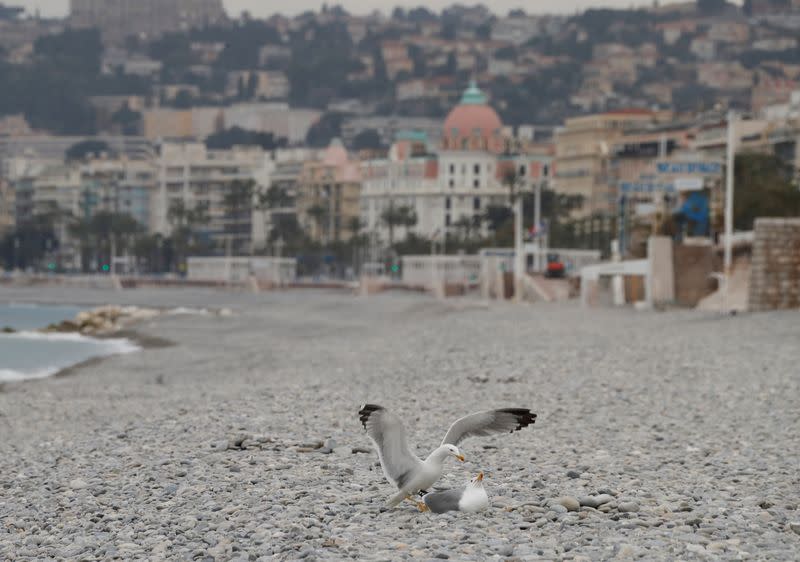PARIS (Reuters) – The French government will impose tougher restrictions on some regions, including Paris, starting this weekend to curb the accelerated spread of COVID-19 infections, spokesman Gabriel Attal said on Wednesday after an office meeting.
The announcement paves the way for new curbs in the Greater Paris region, where intensive care wards are full and the hospital system is doubling with an incident rate of more than 400 cases per 100,000 inhabitants.
Attal said the new measures for Paris could include some form of confinement. Weekend roadblocks have already been imposed over an evening curfew across the country along parts of the Mediterranean Riviera and some northern areas.
President Emmanuel Macron hoped that a vaccination campaign could prevent a new pandemic wave triggered by more contagious variants and prevent France from resorting to more measures that could slow the economy and co-opt citizens.
This approach is now being tested. The launch of the vaccine has been delayed by an expensive EU procurement process, supply difficulties, public skepticism and, more recently, the suspension of vaccination with AstraZeneca vaccines in more than a dozen EU states, including France.
On Wednesday, Macron defended the EU COVID-19 vaccine strategy and said that in a few months Europe would be among the regions that produce the most doses.
“We are living through the most difficult weeks now. We know that,” said Macron after welcoming the Prime Minister of Poland to the Elysee Palace.
The new restrictions will be announced by the prime minister on Thursday. They will not include closing schools, said Attal.
The head of Paris’ public hospitals previously warned that the virus was spreading through the capital and neighboring departments, an area that accounts for about a third of economic activity.
“The virus is not under control,” said Martin Hirsch.
(Reporting by Sudip Kar-Gupta and Matthieu Protard; Writing by Richard Lough; Editing by Edmund Blair and Hugh Lawson)
